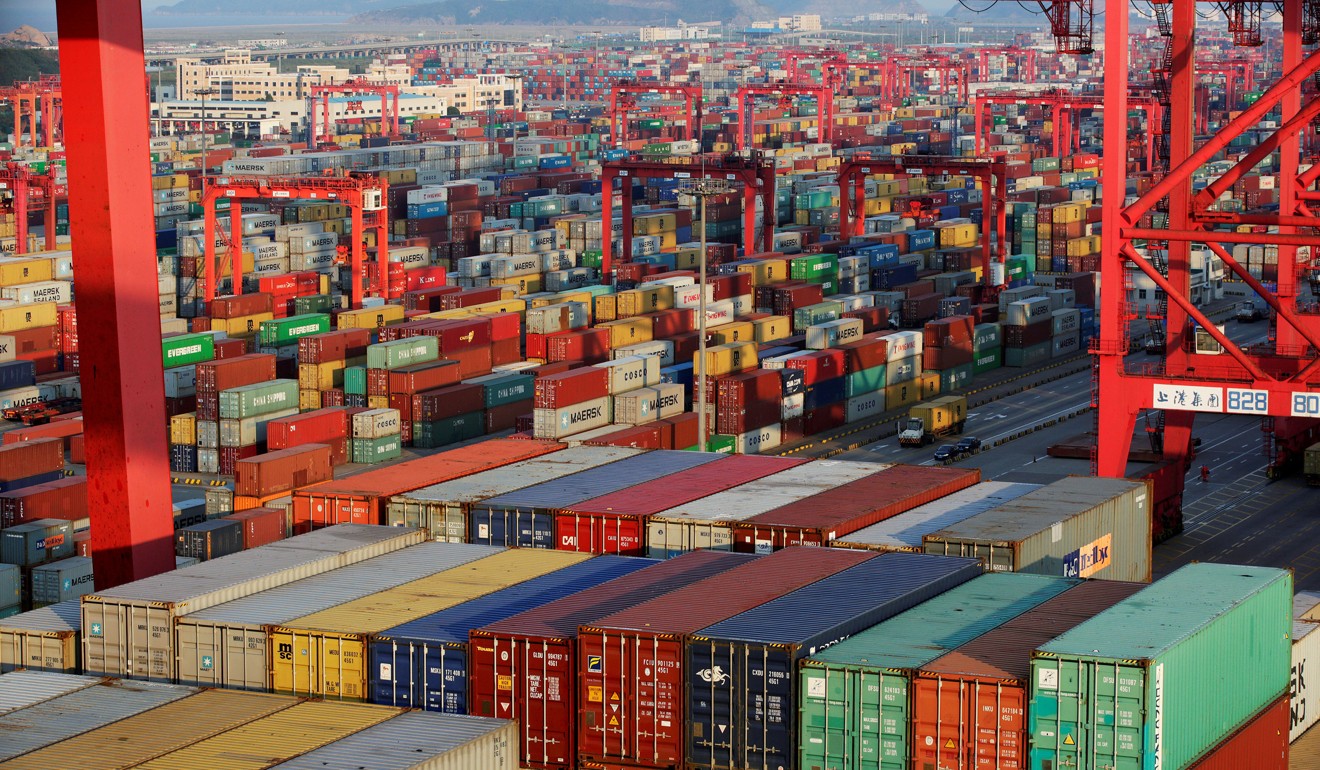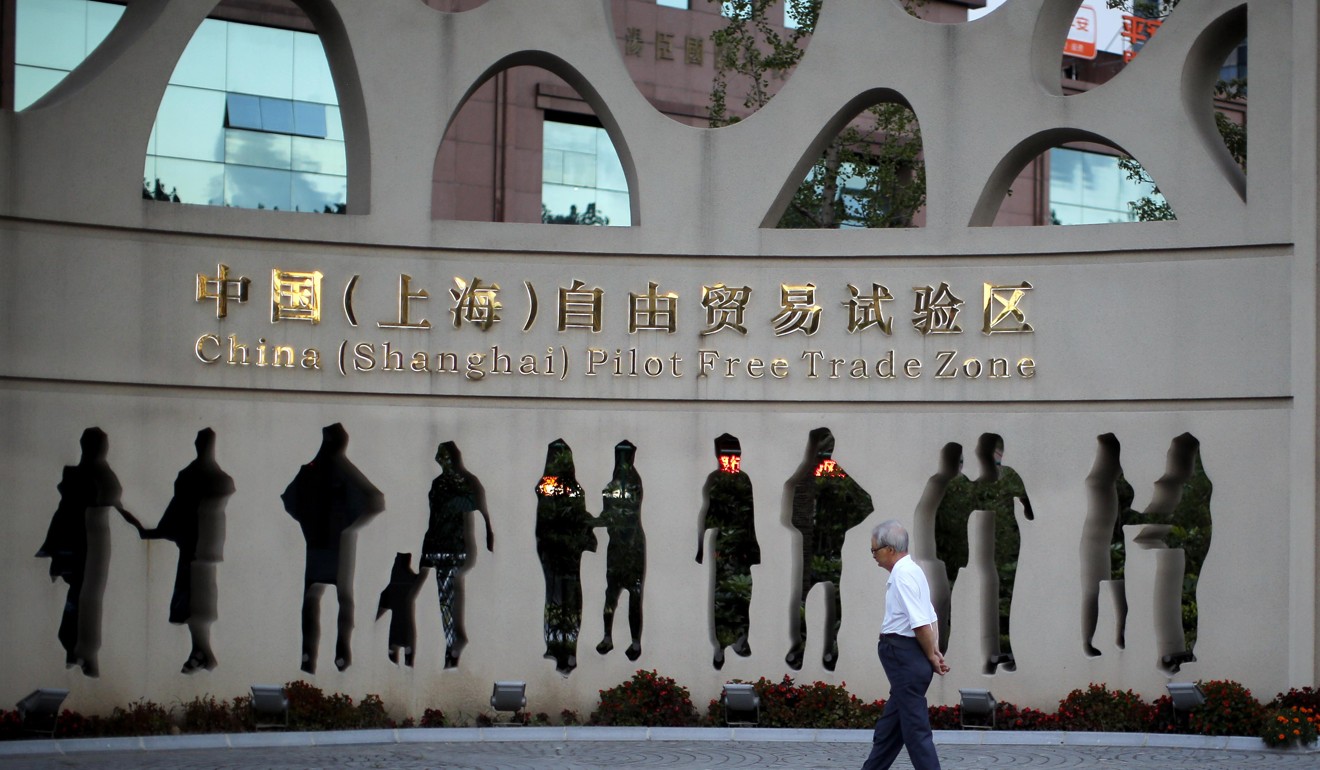
Hong Kong must rely on its own efforts to compete with cities in mainland China
Challenge comes as Beijing seeks to bring country’s economic development to a higher level
As the Chinese saying goes, a distance as long as a thousand miles lies in the change of a single word, the adage stemming from how changing one word in the name of a place can make it a completely different and far-off location. The same can be applied to the Beijing leadership asking for the current free trade “zones” to be upgraded to free trade “ports”.

While a “zone” refers to only a designated area, Beijing expects a “port” to have “stronger radiation effects”, or a greater economic impact, according to Wang.
So, how seriously should Hong Kong take this message?
‘Innovation’ needed to capitalise on Greater Bay Area, Hong Kong official says
Industrial insiders in Shanghai have acknowledged it’s still too early to achieve such an ambitious goal endorsed by the recently concluded 19th Communist Party Congress. But the financial hub is due soon to submit to the central government a detailed plan to build a Hong Kong type of free trade port, as reported by the Post last week.
In his 3 ½ hour-long political report to the five-yearly assembly in late October, Xi unveiled his plan for 11 free trade zones across the country to further explore ways to become “free trade ports”.
Industry insiders view Shanghai port plan to rival Hong Kong as unrealistic
The week before, another lengthy article in People’s Daily under Wang’s name elaborated the importance of the “free trade ports” to China’s economic restructuring by highlighting successful cases in the world, including Hong Kong.
Is the key takeaway here “to surpass” Hong Kong and Singapore eventually
If the message was subtle from Wang, who has just been elevated to the core of the party leadership, the Politburo Standing Committee, then a People’s Daily explainer on his 6,400-word article was more direct: “Free trade ports like Hong Kong and Singapore should be examples for us to learn, to compete, and to surpass.” Turning the existing free trade zones into ports was to take China’s economic development to a higher level, it added.
So, is the key takeaway here “to surpass” Hong Kong and Singapore eventually?
In the case of Singapore, it can be understandable – after all, it’s a competition between two countries. But when it comes to Hong Kong, “to surpass” concerns the adjustment of the city’s status and role in the country’s overall development.

As a result, Shanghai Disney was only able to open in the summer of 2016, 11 years after Hong Kong, though on a much bigger scale.
Why is Singapore much smarter than Hong Kong? City left trailing rival in global technology index
Secretary for Commerce and Economic Development Edward Yau Tang-wah hailed the deal as an important move, as Asean is a key trading partner for the city.
But a change of reality is also in play. Hong Kong will need to rely more on its own efforts than Beijing’s “interference” when competing with other mainland cities in future.

